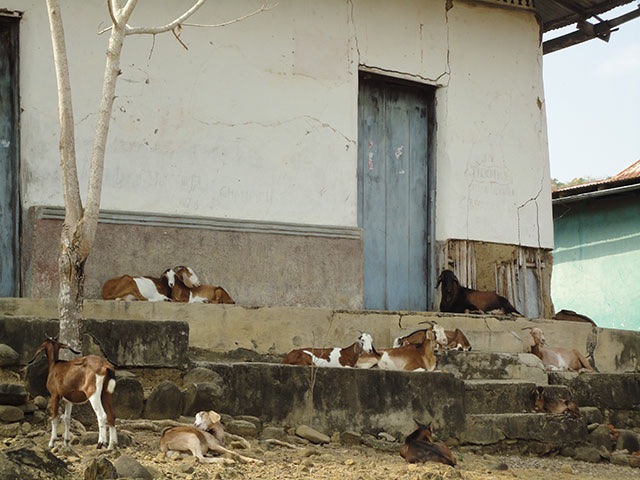Un Asunto de Tierras
-
Réalisé par Patricia Ayala Ruiz • Écrit par Patricia Ayala Ruiz
-
Venezuela, Colombie • 2014 • 78 minutes • Couleur
- Réalisation :
Patricia Ayala Ruiz - Écriture :
Patricia Ayala Ruiz - Image :
Ricardo Restrepo - Son :
José Jairo Flórez - Montage :
Gabriel Baudet
- Production (structure) :
Pathos Audiovisual - Coproduction :
Alter Producciones Audiovisuales - Ayant droit :
Pathos Audiovisual
- N° ISAN :
non renseigné
Résumé
De son début à sa fin, Un asunto de tierras trace un cercle horriblement parfait : l’orbe d’un changement que les autorités colombiennes ont inscrit dans la loi en 2011 sans permettre son application. Patricia Ayala Ruiz aurait pu filmer le processus de restitution des terres aux victimes de la violence en Colombie à grande échelle, puisqu’il concerne 4 millions de paysans. Ce faisant, elle aurait accompagné de loin ce vote historique. Au lieu de cela, elle se tient au point de vue de quelques ex-habitants de Las Palmas – un village si désaffecté que l’administration ne le nomme plus. En alternant les discours à l’assemblée et le parcours du combattant pour qui tente de récupérer sa maison, le montage souligne la grammaire même du déni : "Je sais bien... mais quand même" pourrait dire le gouvernement, à la fois scandalisé par les expropriations massives et prompt à ériger un barrage bureaucratique devant les victimes. Mais chemin faisant, la variété des petits groupes ou des individus qui font relais étonne, qu’ils soient religieux ou "leaders des restitutions" (dont on apprend incidemment à la radio que 53 d’entre eux ont été assassinés). Il n’est que de voir le jeune couple venu remplir un formulaire au nom de 1 500 familles, qui plus tard raconte ses traumatismes d’enfance, pour voir briller une bouleversante dignité dans ce sombre écrin kafkaïen.
(Charlotte Garson)
From start to finish, A Matter of Land draws a horrendously perfect circle: the orb of a change that the Colombian Government enshrined in 2011 law without allowing its implementation. Patricia Ayala Ruiz could well have filmed the large-scale return of lands to Colombia’s victims of violence as four million rural smallholders were concerned. In this case, she would have accompanied the developments of this historic vote from afar. Instead, she sticks to the viewpoint of a few former inhabitants of Las Palmas—a village so aban- doned that the administration no longer even names it. Alternating the speeches made to the Assembly and the uphill battle for anyone who tries to reclaim their home, the editing lays its finger on the grammar of denial: “I know... but even so” the government might say, at the same time scandalised by the mass expulsions yet quick to mount a bar- rage of red tape against the victims. But as the film advances, we meet an astonishing variety of small groups or individuals that lend their support, be they confessional or “leaders of the return movement” (we hear incidentally on the radio that 53 of them have been assassinated). We only have to witness the young couple that have come to fill in a form on behalf of 1,500 families, and who later describe their childhood traumas, to see the overpowering dignity shining through in this sombre Kafkaesque frame.
(Charlotte Garson)
Mot(s)-clé(s) thématique(s)
Sélections et distinctions
- 2015 • Images en bibliothèques • Paris (France) • Film soutenu par la Commission nationale de sélection des médiathèques
- 2015 • Panorama du cinéma colombien • Paris (France) • Compétition Longs Métrages
- 2015 • Cinéma du réel • Paris (France) • Compétition Internationale - Premiers Films
Comment avoir accès au film ?
-
Édition DVD
- Il n'existe pas d'édition DVD à notre connaissance
-
Accès VOD
- Il n'existe pas d'accès en VOD à notre connaissance
- Diffusion non commerciale / Consultation

